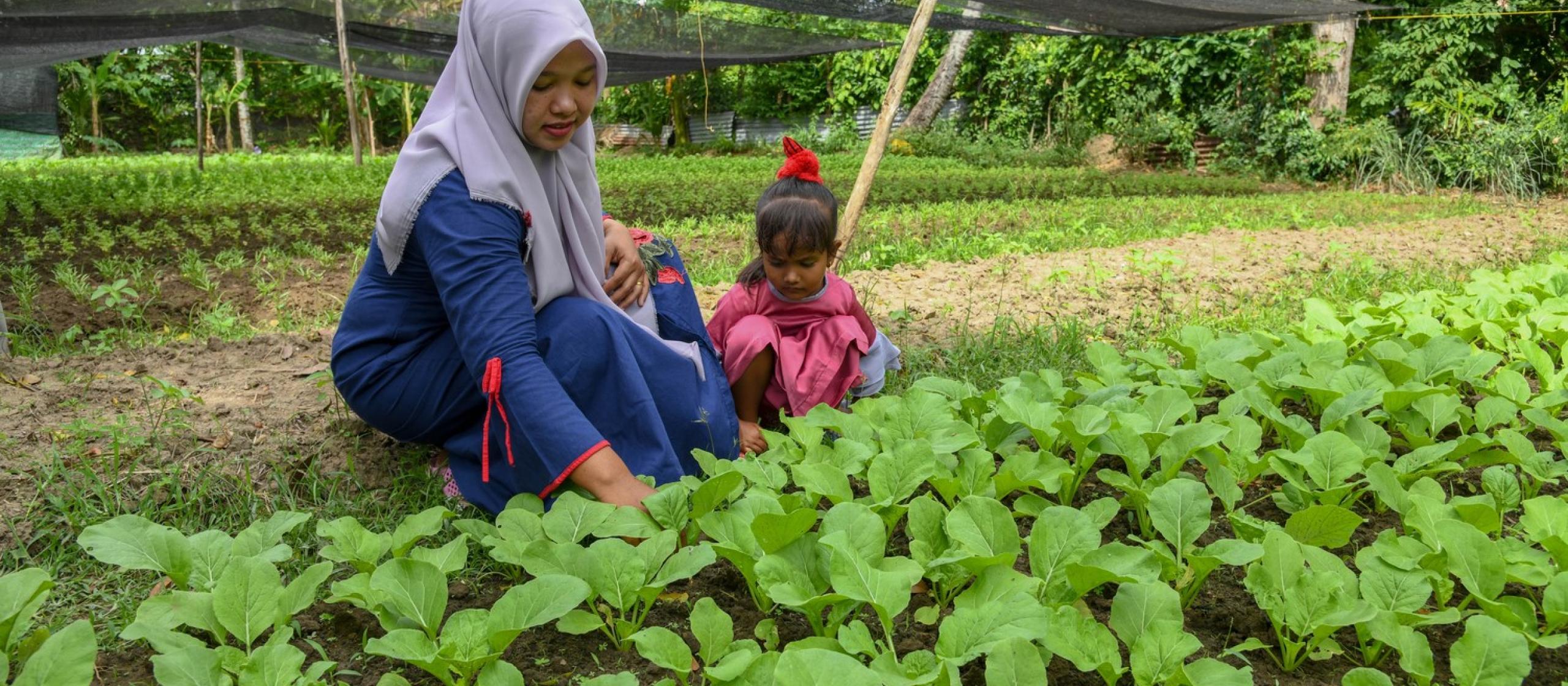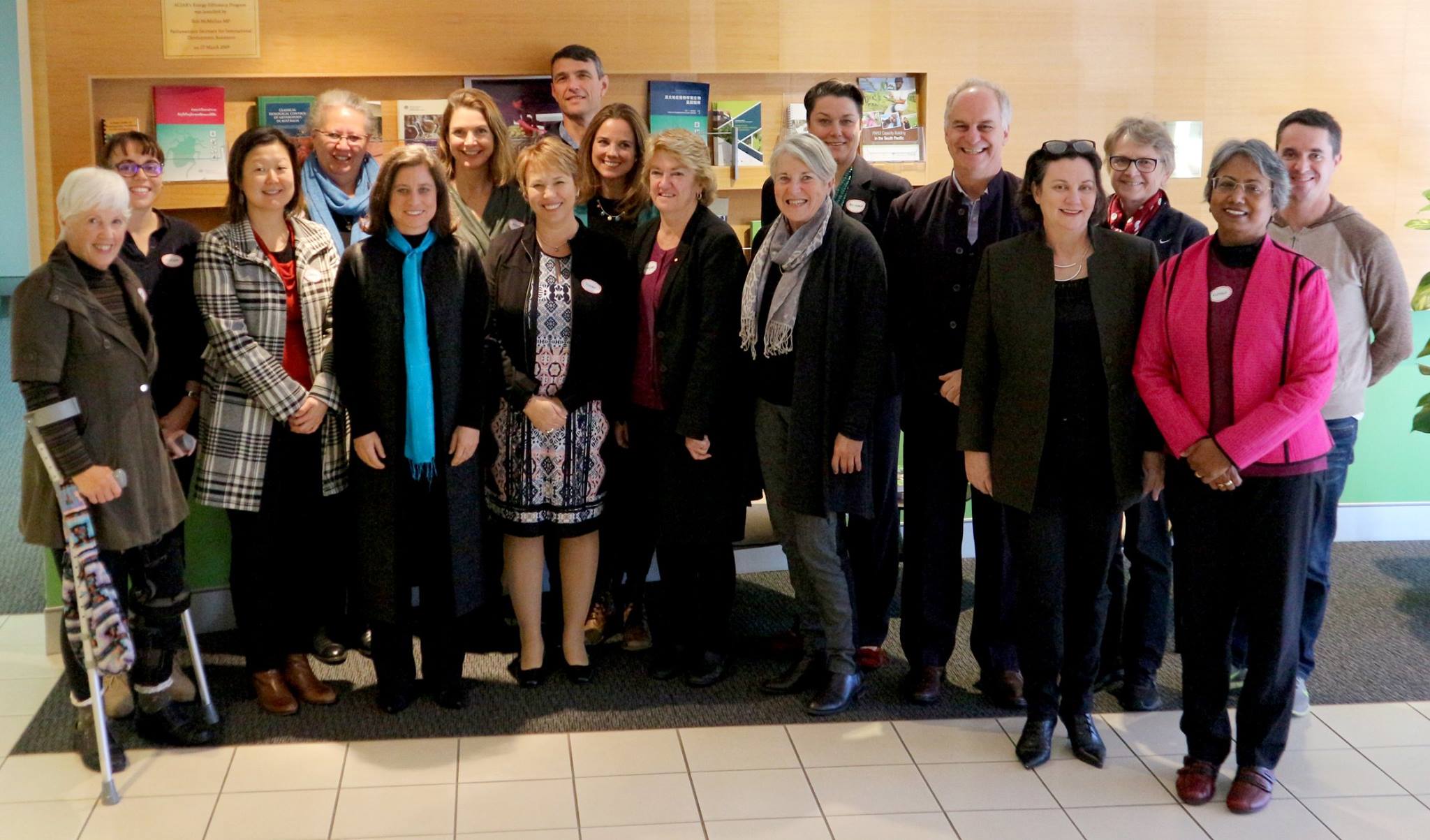- HomeHome
-
About ACIAR
- Our work
- Our people
-
Corporate information
- ACIAR Audit Committee
- Commission for International Agricultural Research
- Policy Advisory Council
- Agency reviews
- Executive remuneration disclosure
- Freedom of information (FOI)
- Gifts and benefits register
- Information publication scheme
- List of new agency files
- Contracts
- Legal services expenditure
- Privacy impact assessment register
- Commonwealth Child Safe Framework
- Benefits to Australia
- Careers
- 40 years of ACIAR
-
What we do
- Programs
- Cross-cutting areas
- Resources
- Where we work
-
Funding
- Research projects
- Fellowships
-
Scholarships
- John Allwright FellowshipScholarships to study in Australia for ACIAR partner country scientists to have Australian postgraduate qualifications
- ACIAR Pacific Agriculture Scholarships and Support and Climate Resilience Program
- Alumni Research Support Facility
- Publications
- News and Outreach
Date released
25 March 2019
In 2015, leaders of the 193 UN member nations pledged to end gender inequality in all forms by 2030, as part of their adoption of the 17 Sustainable Development Goals (SDGs). SDG 5 is to ‘achieve gender equality and empower all women and girls’.
The momentum towards gender equality is gathering. In the lead-up to the April ‘Seeds of Change’ conference, Partners spoke to several gender specialists working in agricultural development about what is driving this change.
‘Seeds of Change’ is jointly convened by ACIAR, the University of Canberra and the CGIAR Collaborative Platform for Gender Research. Dr Jayne Curnow, ACIAR Research Program Manager for Social Sciences, says knowledge about gendered social relations and women’s empowerment has increased greatly at ACIAR since she joined three and a half years ago.
ACIAR CEO, Professor Andrew Campbell, is leading a strong senior management commitment and the agency has made enormous strides in the past 18 months. In May 2017, Dr Curnow convened a meeting of 20 Australian and New Zealand gender researchers to discuss the next steps for ACIAR in gender research.
ACIAR now has a Gender Equity Policy and Strategy 2017–22, released in December 2017; whole-of-agency buy in, fostered through an excellent process facilitated by Professor Sharon Bell; an active and revitalised gender committee; a ‘male champion of change’ in its CEO; and importantly, gender is integral in its research project proposal template. This is critical Dr Curnow says, and the fact that ACIAR requires this in project proposals immediately ‘triggers teams to take a multi- or transdisciplinary approach to their research’.
ACIAR recognises that some research partners may need help to incorporate gender research into their project design. Dr Jo Caffery (University of Canberra) wrote the ACIAR gender guidelines and Dr Ann-Maree Nobelius is supporting teams who need help to ensure that gender is factored into their project design.
Dr Curnow says there can be a tendency for discussions about gender to focus narrowly on women rather than the dynamics of gendered social relations or masculinities, or to be cast as a zero-sum game where if women ‘win’, men ‘lose’. However, she says, ‘if we better target, work with and empower both women and men, we anticipate a step change in alleviating poverty’, for everyone in the communities in which we work.
It is a sentiment Vicki Wilde, senior program officer and gender specialist with the Bill & Melinda Gates Foundation, endorses. ‘Our guiding principle is that all lives have equal value. We have been working for a couple of decades on improving the lives of the world’s poor. And an undeniable truth has emerged at the core of every problem we’re trying to solve: women and girls tend to be undervalued. This holds back progress, in agriculture, in health and education.’ ‘It might be assumed that there is not a lot of willingness [from men to support such change] … there is. They see their wives healthier, there is better income, and their children are better nourished,’ Ms Wilde says.
‘It is not a given that there will be resistance, but you do have to be intentional.’ And that speaks to, Ms Wilde says, ‘the need to have gender experts on teams—those who have the knowledge and experience to work sensitively with communities and avoid the risks of unintended consequences’. Dr Curnow says it is important to have qualified social scientists conduct social science research, especially when it comes to gender research, where the principle of ‘do no harm’ is vital.
Partners also spoke to Rhiannon Pyburn, coordinator of the CGIAR Collaborative Platform for Gender Research, about the CGIAR’s work to integrate gender into agricultural research and undertake strategic gender research in the agricultural sector. This year is a transitional one for the gender platform, Ms Pyburn says.
It is being upgraded to increase its profile across the CGIAR and allow broader outreach and increased investment. In 2017, CGIAR established four cross-cutting research platforms: Big Data in Agriculture, Excellence in Breeding, the genebank platform and the gender platform.
The three women are part of a gender reference group advising the CGIAR on gender policy and strategy related to both gender in the workplace and gender research, which includes supporting this upgrade process.
One of the CGIAR-wide research areas that Pyburn is particularly excited about is collaboration with the Big Data platform on gender and big data in agriculture. The big data and gender platforms and related communities share a ‘mutual interest—the big data community wants to factor in gender research much more, and the CGIAR gender research community is very interested in how big data and big data techniques can leverage gender research’. With the help of a small research grant, a collaborative group is comparing datasets from various gender research projects with a view to making an inventory of gender datasets and better describing its contents for further analysis. This involves carefully analysing the metadata to see how datasets can be made more findable, consistent and comparable, and more accessible for researchers to analyse and interpret. The group also aims to develop a minimum set of gender metadata that should be completed by any research project, so that gender researchers can make use of interoperable data.
In an innovative approach, the group is using quantitative data from the Women’s Empowerment in Agriculture Index (WEAI) survey tool. The WEAI measures the roles and extent of women’s engagement in the agriculture sector in five domains:
- decisions about agricultural production
- access to and decision-making power over productive resources
- control over use of income
- leadership in the community
- time use.
Pyburn says this project, with the working title Where in the world are the empowered women and men? will ‘look at the index, and areas where it has been used internationally’, and interrogate the data further. ‘What else can we learn about the people scoring highly or low in the WEAI? Is their empowerment related to education? To infrastructure? Are there links to climate? To the geographical context?’ This research project is also innovative in that it triangulates more traditional data sources, such as household surveys, with more high-velocity and high-volume data sources, such as mobile network data.
Down the track, Pyburn says, they will look at integrating other rich datasets, such as GENNOVATE, a large-scale qualitative dataset, into big data systems. GENNOVATE is a comparative research initiative undertaken by 11 CGIAR centres, and involves 137 communities across 26 countries, with over 7,500 participants. ‘It addresses the question of how gender norms influence men, women and youth in adopting innovation in agriculture and natural resource management. The vast, indepth gender knowledge base was established following five years of research and enables researchers to move beyond the smaller, unconnected studies that have largely defined gender research.’ Including qualitative datasets within a big data system will raise a host of challenges such as confidentiality issues, which will require careful navigation, but this is an area well worth exploring.
As UN Women Executive Director, Phumzile Mlambo-Ngcuka, said in 2016, ‘The 2030 Agenda is an unmistakable commitment to justice and prosperity, with gender equality at its heart. But this is a promise and a commitment that can only be a reality when we have adequate data that we can monitor. We must ensure that when we have policies, these policies can be informed by reliable data. Without quality data, there is simply no credible path to achieving the Sustainable Development Goals.’
Closing the data gap is also a priority for the Bill & Melinda Gates Foundation, which in 2016 committed $80 million over three years to this. According to Melinda Gates, ‘the world agreed to achieve gender equality by 2030. But we cannot close the gender gap without first closing the data gap. We simply don’t know enough about the barriers holding women and girls back, nor do we have sufficient information to track progress against the promises made to women and girls. We are committed to changing that by investing in better data, policies and accountability.’ Last year, the foundation’s first gender equality strategy committed $170 million to women’s economic empowerment.
The 'Seeds of Change Conference' is taking place at the University of Canberra 2-4 April 2019, with ACIAR live-streaming keynote addresses and lectures via social media. Watch and join the conversation via the event's hashtag #SeedsofChange19.







